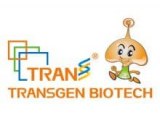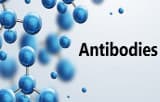TransGen Biotech
 |
||
TransGen Biotech, Inc. is a researcher, developer, manufacturer and distributor of more than 200 molecular and cellular biology products and kits for life science research and molecular diagnostics. In 2001, the company was founded by three scientists with a mission to produce innovative and cost-effective products for life science research. Currently, our products cover: plasmid based DNA markers, high efficiency chemically competent cells, 5 minutes PCR product cloning and expression vectors, a variety of PCR enzymes and supermix, RNase H deficient and high temperature RT enzymes, qPCR and qRT-PCR supermix, the highest efficiency mutagenesis kits, high quality nucleic acid extraction and purification kits, unstained and prestained protein markers, western blot markers, and protein purification resins, cell culture and transfection reagents, antibodies.
Website : www.transgenbiotech.com
| ||

Affinity resins for antibodies
The basis for purification of IgG, IgG fragments and subclasses is the high affinity of protein A (cell wall protein derived from Staphylococcus aureus ) and protein G( derived from groups C and G Streptococci )for the Fc region of polyclonal and monoclonal IgG-type antibodies. Protein A can be used to isolate monoclonal and polyclonal IgG from ascites, serum, and tissue culture and bioreactor supernatants. Protein A purification is recommended for human (except IgG3; mouse IgG1 may bind only weakly), rabbit, guinea pig, and pig antibodies. Addition of the antibody to a protein A– Sepharose column at pH 8.0, followed by elution at a lower pH.
Protein G has a binding profile opposite to that of protein A with respect to pH: antibodies bind better at a low pH and badly at high pH. However, some antibodies (mouse IgG1, and rabbit and human antibodies) do remain bound to protein G at high pH (8 to 10), so it is best to bind the antibody at pH 5 and elute at pH 2.8. This method is useful for mouse IgG1, rat (most subclasses bind weakly although IgG2b may not), monkey, rabbit, cow, goat, horse, and sheep antibodies.



